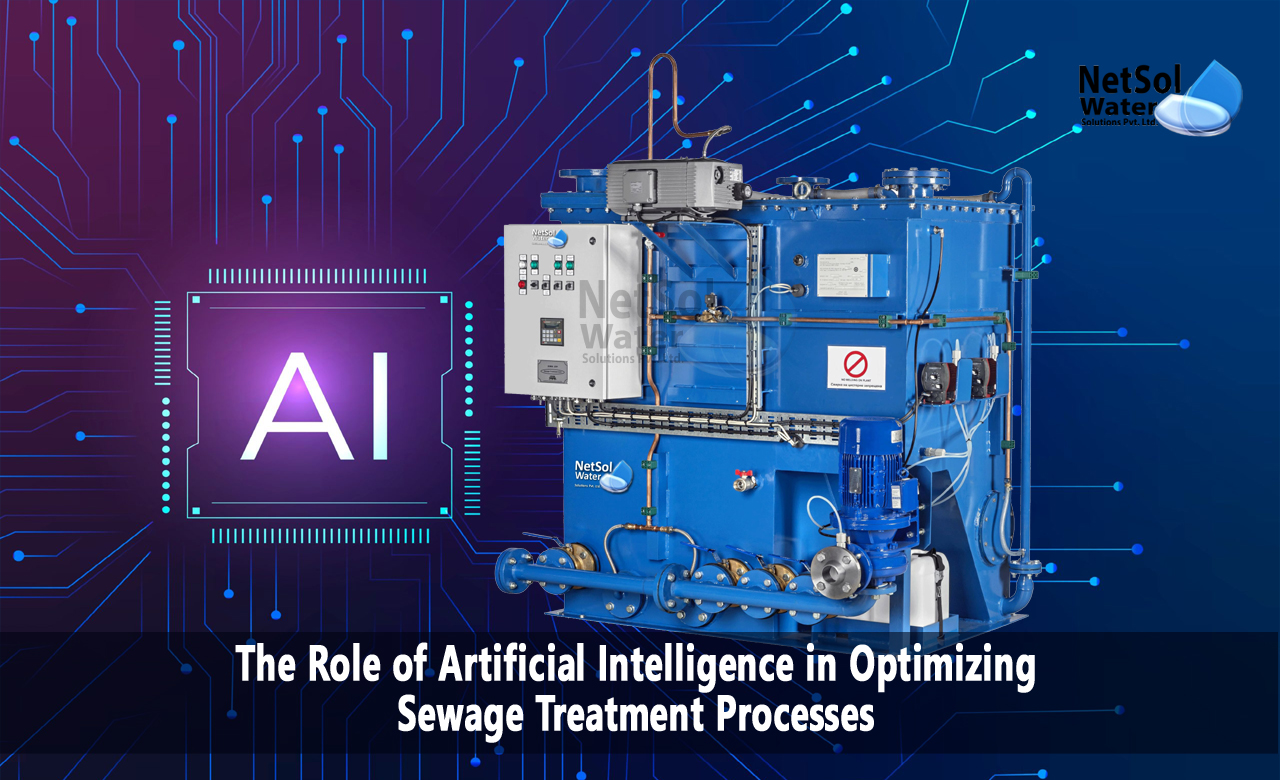What is the Role of AI in Optimizing Sewage Treatment Processes?
Sewage treatment is a critical process in maintaining public health and preserving the environment. With the increasing complexity and volume of wastewater generated, there is a growing need for advanced technologies to optimize sewage treatment processes. Artificial Intelligence (AI) has emerged as a powerful tool in this domain, offering innovative solutions to enhance efficiency, improve decision-making, and optimize resource utilization.
Now we will explore the role of AI in optimizing sewage treatment processes and its potential to revolutionize wastewater management.
Understanding Sewage Treatment Processes
Sewage treatment involves multiple stages, including primary treatment to remove large solids, secondary treatment to remove organic matter, and tertiary treatment to eliminate remaining contaminants. These processes require precise monitoring, control, and adjustment to ensure optimal performance and meet stringent regulatory standards.
AI in Real-time Monitoring and Control
AI technology enables real-time monitoring and control of sewage treatment processes. By integrating sensors, data collection systems, and AI algorithms, it becomes possible to monitor key parameters such as flow rate, pH, dissolved oxygen levels, and nutrient concentrations. AI algorithms analyze this data, providing insights into process performance and enabling automatic adjustments to optimize treatment efficiency.
Predictive Analytics for Process Optimization
AI algorithms can utilize historical and real-time data to predict future process behavior. By analyzing patterns and correlations within the data, AI can forecast changes in pollutant levels, predict equipment failures, and estimate energy consumption. These predictive analytics empower operators to proactively optimize treatment processes, allocate resources efficiently, and reduce operational costs.
Intelligent Decision Support Systems
AI-based decision support systems assist operators in making informed decisions regarding process optimization. By integrating data from various sources, such as process monitoring, weather forecasts, and energy prices, AI algorithms can suggest optimal operating conditions, chemical dosages, and treatment strategies. This intelligent decision support enhances operator efficiency, ensures regulatory compliance, and improves overall treatment performance.
Energy Optimization and Resource Utilization
AI algorithms can optimize energy usage in sewage treatment plants. By analyzing energy consumption patterns, demand fluctuations, and process requirements, AI can identify energy-saving opportunities. It can optimize pump schedules, aeration rates, and chemical dosages to minimize energy consumption while maintaining treatment efficiency. Additionally, AI can optimize resource utilization by predicting sludge production, enabling efficient sludge management and reducing disposal costs.
Early Fault Detection and Maintenance
AI-based systems can detect anomalies and potential equipment failures in sewage treatment processes. By continuously monitoring operational parameters and analyzing deviations from normal behavior, AI algorithms can identify early warning signs of equipment malfunctions or process inefficiencies. Early fault detection allows for timely maintenance, reduces downtime, and extends the lifespan of critical assets.
AI for Process Optimization in Smart Sewage Systems
The integration of AI into smart sewage systems offers immense potential for process optimization. Smart systems utilize real-time data, IoT sensors, and AI algorithms to monitor and control the entire wastewater management process. AI can analyze data from multiple sources, optimize treatment processes, predict system overflows, and dynamically adjust operations to minimize environmental impact and ensure efficient resource utilization.
Summary:
Artificial Intelligence is revolutionizing sewage treatment processes by enabling real-time monitoring, predictive analytics, intelligent decision support, energy optimization, and early fault detection. By leveraging the power of AI, sewage treatment plants can improve process efficiency, reduce operational costs, and enhance environmental sustainability. The adoption of AI technologies in wastewater management holds great promise for optimizing sewage treatment processes and addressing the challenges of growing urbanization and environmental concerns.
Leading manufacturer of sewage treatment plants in India.
Netsol Water is Greater Noida-based leading water & wastewater treatment plant manufacturer. We are industry's most demanding company based on client review and work quality. We are known as best commercial RO plant manufacturers, industrial RO plant manufacturer, sewage treatment plant manufacturer, Water Softener Plant Manufacturers and effluent treatment plant manufacturers. Apart from this 24x7 customer support is our USP. Call on +91-9650608473, or write us at enquiry@netsolwater.com for any support, inquiry or product-purchase related query.



